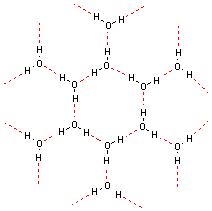First off i'm a n00b at science.
But, just a few minutes ago i was far to hot in my room so went and got a glass of water, with loads of ice (about 10 cubes, basically filled a pint glass 2/3rds up with them), and then i put the glass under the tap and filled it with water as you do.
Out of boredom and me being an inquisitive kind of person, i decided to measure the temperature of the water. 5c to start, dropping quickly..4c..3c..2c..1c..0..-2...-4...-5, and there it stopped. -5c. Ergh, what, how ? it's still water.
And this has left me very confused. At first i assumed the movement caused by me drinking it was preventing it from freezing. So i let it settle for a few minutes, yet still no freezing. How can this be so ? Water is substantially below freezing and yet it is still just water.
This must happen everytime i have ice in my drink and i've never really thought about it.
Clever people answer me ? i can't sleep when i have something like this bugging me And yes i've googled it, unsurprisingly "Why doesn't my drink freeze when it's full of ice and is at -5c ?" doesn't bring up many results. I know about being able to supercool water, but from what i can tell this is only possible with pure water when you cool it very slowly, two things i havn't done.
And yes i've googled it, unsurprisingly "Why doesn't my drink freeze when it's full of ice and is at -5c ?" doesn't bring up many results. I know about being able to supercool water, but from what i can tell this is only possible with pure water when you cool it very slowly, two things i havn't done.
But, just a few minutes ago i was far to hot in my room so went and got a glass of water, with loads of ice (about 10 cubes, basically filled a pint glass 2/3rds up with them), and then i put the glass under the tap and filled it with water as you do.
Out of boredom and me being an inquisitive kind of person, i decided to measure the temperature of the water. 5c to start, dropping quickly..4c..3c..2c..1c..0..-2...-4...-5, and there it stopped. -5c. Ergh, what, how ? it's still water.
And this has left me very confused. At first i assumed the movement caused by me drinking it was preventing it from freezing. So i let it settle for a few minutes, yet still no freezing. How can this be so ? Water is substantially below freezing and yet it is still just water.
This must happen everytime i have ice in my drink and i've never really thought about it.
Clever people answer me ? i can't sleep when i have something like this bugging me


